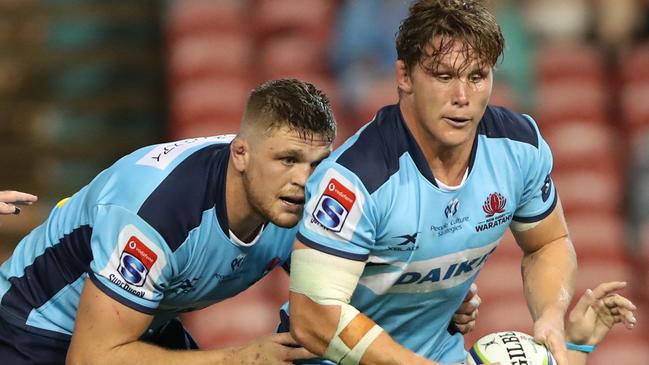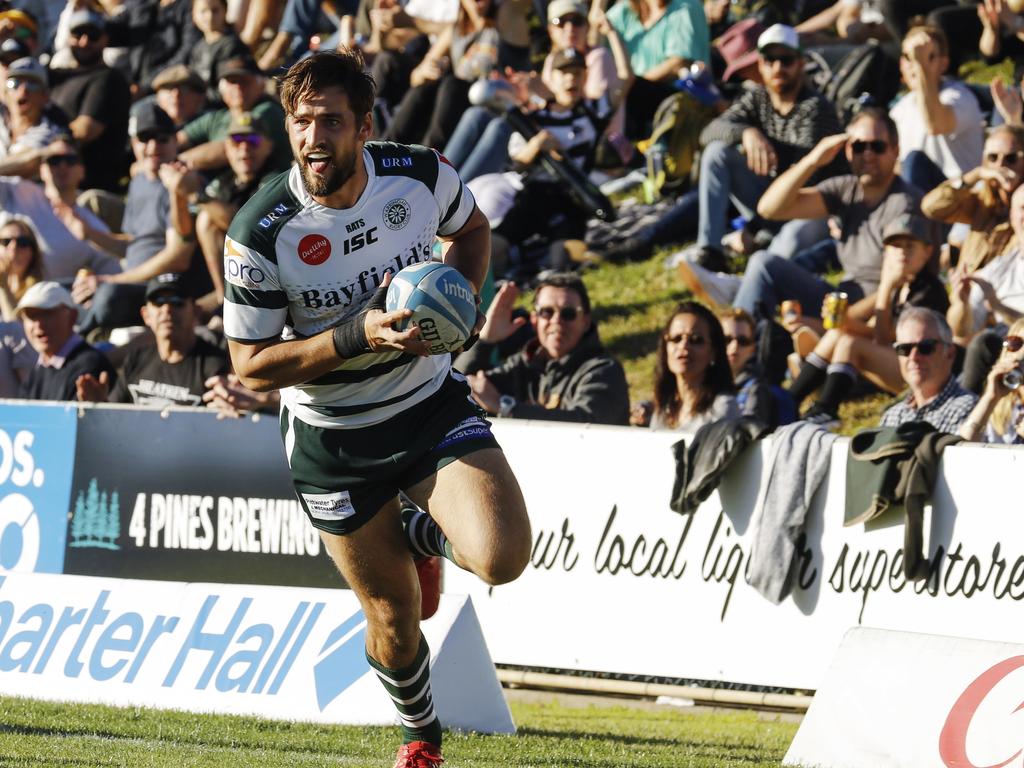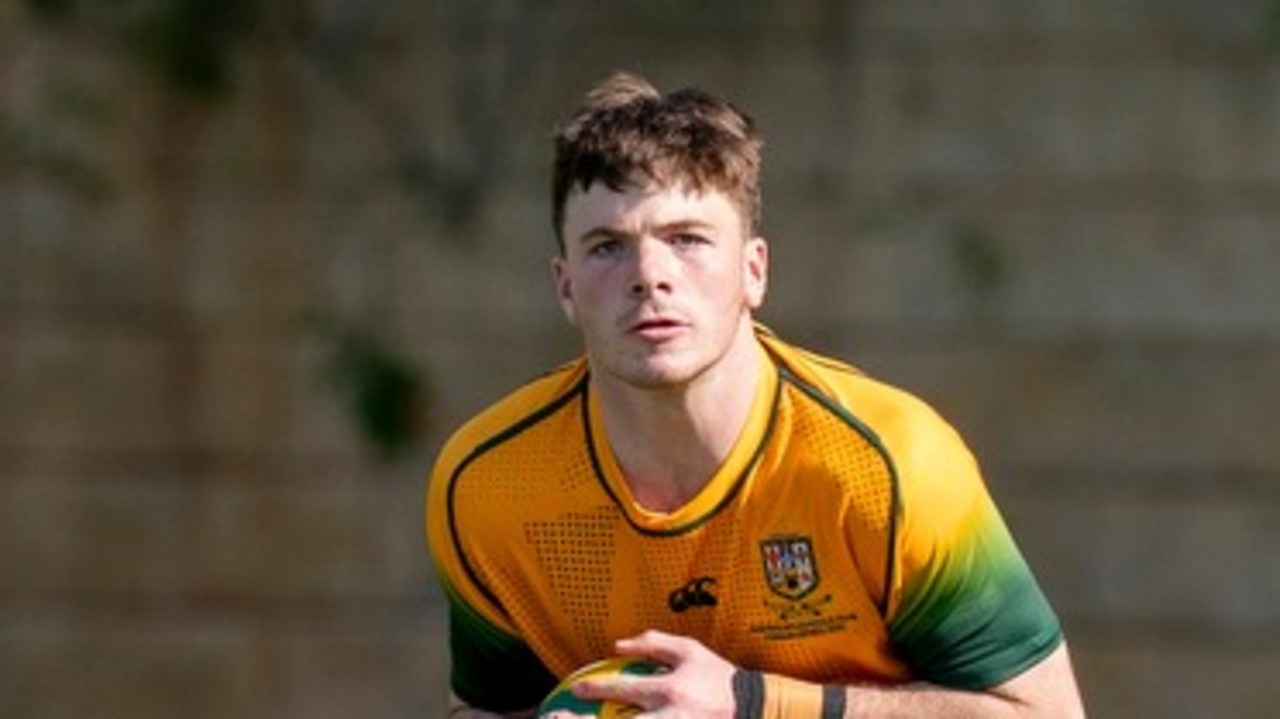
Following my article last week there were hundreds of comments.
Michael wrote: “If this situation could be defined by the ‘doomsday clock’ of rugby in Australia, it would be one minute to midnight. Unless RA makes some dramatic changes now, it will be too late next year.”
Les says: “It seems that supporters of rugby in Australia are now compelled to stand on the sidelines and watch its untimely demise. Unfortunately, it seems to be a slow lingering death by a thousand cuts.”
Warren wrote: “If someone set out to destroy rugby, they could not do any better. Grassroots rugby must take the game back — Andrew Forrest and Fox, with games on free to air as well.”
And Peter: “The ARU got rid of all the old rugby hard heads on the board in their quest for ‘corporate best practice’.
“The game in Australia has never been so broken, unpopular, financially drained and on-field unsuccessful. They have driven away their old-school rusted-on supporter base, but at least Australian rugby is inclusive, diverse and woke.”
May I respectfully say we are also now seventh in the world behind France and just ahead of Japan.
John O’Neill, who was the boss of the Australian Rugby Union from 1995 to 2004 and again from 2007 to 2012, argues quite rightly that “the current board and management, with a shelf life of six weeks, must go into caretaker mode and cease all negotiations on the broadcast deal.
“How can the incoming new board be left vulnerable to inheriting such a critical aspect of the game’s revenue?”
To put it in pub language, the rugby punter believes the current lot have stuffed up enough and should not be allowed to make any decisions which are binding on a new administration, and that includes the broadcast deal.
But on broadcast rights, I am advised that the dead man walking in Australian rugby, the chairman Cameron Clyne, is telling anyone who will listen that Raelene Castle’s big plus is in broadcast negotiations!
Was that on her CV?
Did she do a broadcast deal for netball or the Canterbury Bulldogs?
Make no mistake, the broadcast deal is critical.
If the money isn’t there, (and the current deal is worth $57 million a year and I can’t see any deal coming anywhere near that) will there be a player exit?
However, as I have written before, I don’t believe Rugby Australia should be involved in blanket centralised contract negotiations.
So what if some of our best players want to play overseas.
Those clubs can pick up the tab.
The player should be asked to negotiate a contract that provided for a release if they want to be chosen for Australia.
We would be up for match payments only — saving millions.
And these match payments should not be the same for losing as they are for winning, as they are now.
I’m reminded that when one former board member wrote a paper last October suggesting Australian rugby faced serious financial risks, and he nominated the Folau case, broadcast negotiations, sponsorship and match day attendances, he was told by Rugby Australia he was “scaremongering” and everything was OK.
Everything is OK!
After two rounds of Super Rugby, three of the Australian teams are at the bottom of the rugby birdcage.
Just on that, I noticed when the Waratahs took a hammering from Auckland, who were minus many of their leading players, NSW players in post-match interviews said, “They did not do what they went out to do”.
I never know what that sort of talk means.
But I was taught the first principle in execution of a successful rugby strategy is to hang onto the football and make tackles.
Do we have another foreign coach taking us into rugby oblivion?
To quote O’Neill again, he asked this week in relation to broadcasting rights: “Do Rugby Australia know what they are selling … the mass entertainment component is Super Rugby and the Rugby Championship and they haven’t told the Australian rugby public what Super Rugby is going to look like.”
Well, let’s have a try as to what it should be.
But first!
I am reminded that “bushido” is a Japanese term for the many codes of honour and ideals that dictated the samurai way of life.
It’s a bit like the European concept of chivalry.
In an ideal world, the leaders of our game would behave like samurai and act in accordance with a code of honour and a sense of justice.
Unfortunately, both honour and justice have been in short supply in rugby in recent times.
Back to Japan.
“Seppuku”, also known as harakiri, is the ritual of falling on your sword.
Samurai warriors would fall on their swords to escape the shame of defeat in battle.
It’s time the chairman of Rugby Australia, and the board, considered harakiri in terms of their roles in rugby.
Immediately.
They, sadly, have presided over one of the worst periods in our game’s rich history.
Clyne’s honour can be restored by immediately surrendering his position as chairman of the board and any involvement with the nominations committee.
Mind you, there should be no such thing.
If Clyne continues to ignore the feelings of the wider rugby public in seeking to shape the next board, he risks further humiliation.
Indeed, it would be no bad thing if we immediately had a replacement for Clyne so that Rugby Australia once again has some “bushido” and honour.
Let’s wind the clock back to 2017 when Cameron Clyne and John Eales drove the decision to axe the Force from Super Rugby.
Eales sensibly stood down.
Another Rugby board member, an outstanding individual, a man of honour, Geoff Stooke, resigned in protest and disbelief.
He could not believe what his chairman and board were doing.
How do you decide to throw a part of the rugby family under the bus?
Of course, the argument would be they were saving money.
Yet Andrew Forrest offered a $50 million bailout package and was sent to the rugby knackery.
It’s good news that Stooke is ready to make a comeback and hopefully will be welcomed back at the Rugby Australia AGM in April.
But it’s also obvious that if the current administrative flunkeys aren’t gone, we won’t see Stooke or Forrest back inside the tent where we need them.
Why do we need them?
Well, the game is changing.
It’s clear we face significant challenges beyond the capacity of the current board to identify them or respond to them.
Super Rugby, and the Rugby Championship, are losing their appeal because of the multitude of time zones and the hassle with 2am kick-offs.
That’s why there’s a lot of noise about South Africa leaving the Six Nations and the European Rugby Championship.
That will happen. It makes sense. For South Africa, it could be a financial miracle.
South Africa are in the same time zone as Europe and the UK. Their future is north.
There are many South African players at the big English and French clubs. Most of them are household names. People will watch them, regardless of the club that they play for.
Australia and New Zealand are in the same time zone as Japan. There are plenty of world-class Wallabies and All Blacks in the big Japanese clubs. Our future must be to our north.
That’s why Forrest has launched Global Rapid Rugby in Asia.
All the Rapid Rugby teams are based in the same time zone. People can watch the games live.
There are at least four big Japanese clubs who could match it with all the Australian and New Zealand Super Rugby teams — teams such as Suntory, Kobe, Toshiba and Panasonic all carry playing rosters full of world-class players.
“Subarashi” is a Japanese word for excellent or glorious or splendid. Magnificent! Our Super Rugby could become “Subarashi” Rugby.
We need to look to the future with imagination and entrepreneurial enthusiasm.
There are about 130 million Japanese people. They’ve just hosted a brilliant Rugby World Cup. They will host a brilliant Olympics.
Japan is open for business.
I believe we need to get up to Japan with the New Zealand Rugby, with plans for Subarashi Rugby; then sit down with SANZAAR and draw up divorce papers.
And this should happen before the new broadcast deal is even considered. Our future is north and our future is now.
We have to sort out the competition structure before we sort out the broadcast deal.
If our game is going to prosper in a phenomenally competitive environment, we need a chairman with vision and a capacity to prosecute an argument and a board prepared to face a brave new world.
That means showing the exit door to the current administration and finding a place at the table for people like Stooke and Forrest.
But, to lead the way we first need a chairman who has more “bushido”.







It is a measure of the crisis confronting rugby and its administration in this country that the rugby mail is both overwhelming and disturbing.